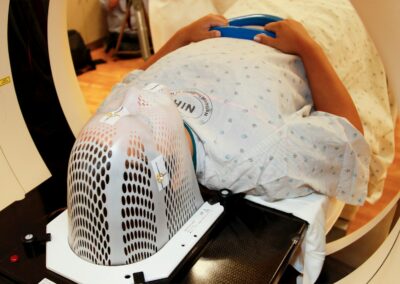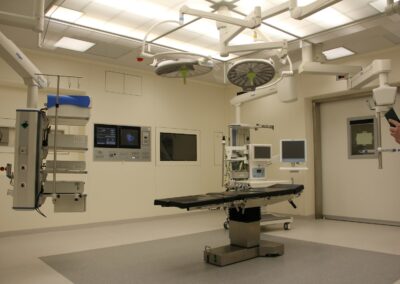Transforming Healthcare in Saudi Arabia and the UAE with AI
Enhancing Access to Quality Healthcare through AI
One of the most significant areas where AI can make a profound impact is in improving healthcare outcomes for underserved populations. By leveraging AI, healthcare providers can address the disparities in access to quality care, ensuring that even the most remote or economically disadvantaged communities receive the medical attention they need. For business executives, mid-level managers, and entrepreneurs, understanding the potential of AI in healthcare is essential for fostering innovation and contributing to societal well-being.
One of the primary ways AI in healthcare can improve outcomes for underserved populations is by enhancing access to medical services. AI-powered telemedicine platforms enable healthcare providers to reach patients in remote or rural areas, where access to healthcare facilities may be limited. Through virtual consultations and AI-driven diagnostic tools, patients can receive timely medical advice and treatment without the need to travel long distances. In Saudi Arabia and the UAE, where vast geographic areas include remote communities, AI-driven telemedicine can bridge the gap between urban and rural healthcare, ensuring that all citizens have access to essential medical services. This not only improves individual health outcomes but also contributes to the overall health of the nation.
Another significant benefit of AI in healthcare is its ability to optimize resource allocation. AI algorithms can analyze vast amounts of data to identify trends and predict healthcare needs, allowing for more efficient distribution of resources such as medical supplies, personnel, and equipment. In regions like Riyadh and Dubai, where the demand for healthcare services is rapidly growing due to population increases and urbanization, AI can help ensure that resources are allocated where they are needed most. This proactive approach can prevent shortages and ensure that underserved populations receive the care they require, leading to better health outcomes and a more resilient healthcare system.
Innovative AI Solutions for Underserved Populations
To fully harness the benefits of AI in healthcare for underserved populations, it is essential to develop and implement innovative solutions that address the unique challenges faced by these communities. One such solution is the use of AI-powered mobile health (mHealth) applications that provide health information, reminders for medication adherence, and monitoring of chronic conditions. These apps can be particularly useful in areas where healthcare infrastructure is limited, allowing patients to manage their health independently while maintaining a connection with healthcare providers. In Saudi Arabia and the UAE, where smartphone penetration is high, mHealth apps powered by AI can significantly enhance the accessibility and effectiveness of healthcare services for underserved populations.
Another innovative application of AI in healthcare is in the early detection and prevention of diseases. AI algorithms can analyze data from various sources, such as electronic health records, wearable devices, and social determinants of health, to identify individuals at risk of developing chronic conditions or infectious diseases. By identifying these risks early, healthcare providers can implement preventive measures and interventions that reduce the burden of disease on underserved populations. In regions like Riyadh and Dubai, where public health initiatives are a priority, AI-driven disease prevention strategies can help mitigate the impact of health disparities and improve the overall quality of life for all citizens.
Finally, AI can play a critical role in advancing medical research and innovation, particularly in areas that disproportionately affect underserved populations. By analyzing large datasets, AI can identify patterns and insights that may lead to the development of new treatments, therapies, and healthcare models tailored to the needs of these communities. In Saudi Arabia and the UAE, where there is a strong emphasis on becoming leaders in healthcare innovation, AI-driven research can contribute to the global effort to reduce health disparities and improve outcomes for underserved populations worldwide.
#AIinHealthcare #ImprovingHealthcareOutcomes #UnderservedPopulations #AIinSaudiArabia #AIinUAE #BusinessSuccess #LeadershipSkills #ManagementConsulting #Telemedicine #HealthcareInnovation























